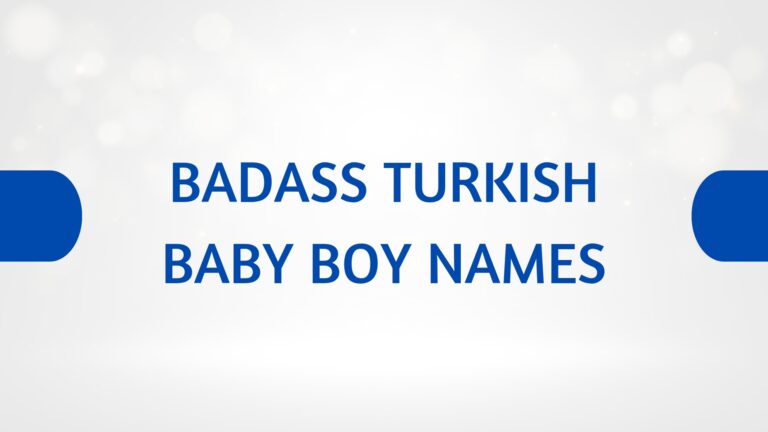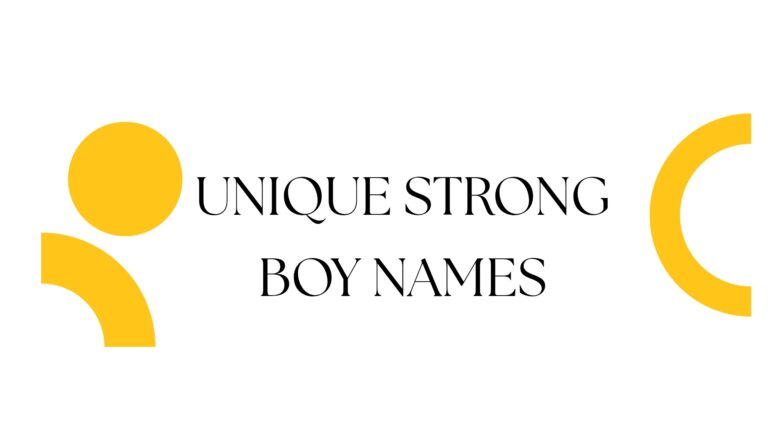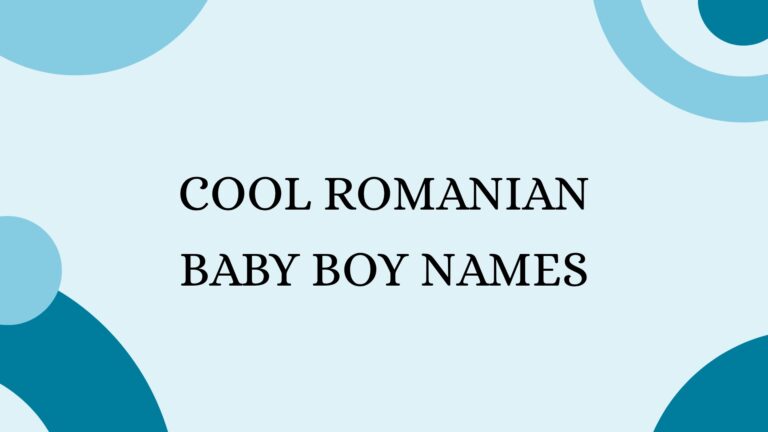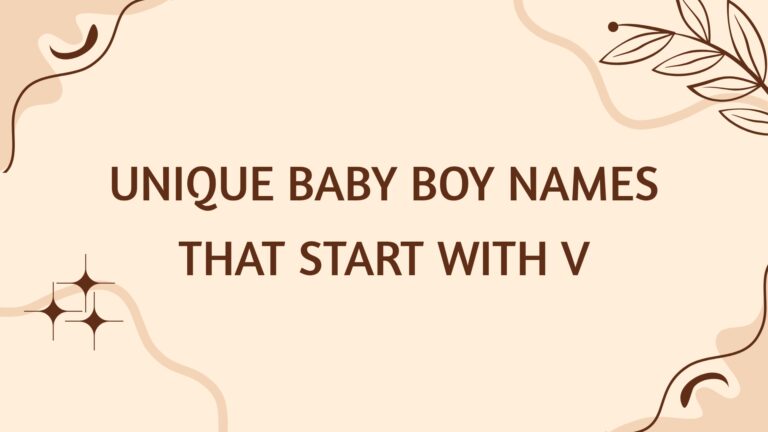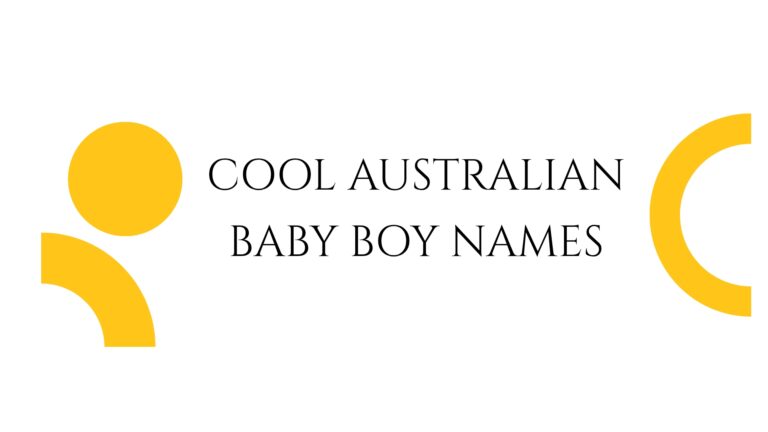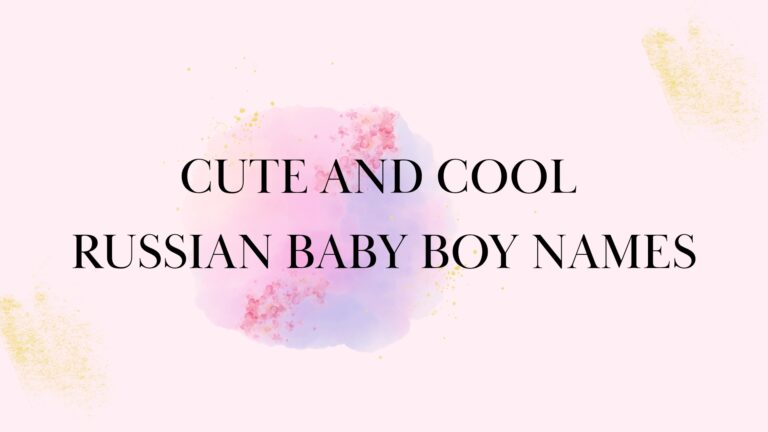100 Badass Hungarian Baby Boy Names
Hungary is brimming with warriors, kings, and legends of generations past, so the names certainly reflect that warrior spirit.
Hungarian baby boy names are bold, confident, and rich with personality, making them great choices for parents searching for names with strength, meaning, and story.
Whether you like the names of ancient Magyar warriors, powerful rulers, or timeless folk heroes, Hungarian baby boy names encompass elements of strength, resilience, bravery and individuality that are embodied in their meanings.
If you want a strong meaningful name that retains a sense of originality while having a rich history, Hungarian names encompass a blend of cultural pride and badass aesthetic elements.
badass hungarian baby boy names
Ákos – Derived from Old Turkic meaning “white falcon,” symbolizing nobility and freedom
Balázs – Meaning “stammering,” but linked with Saint Blaise, a protector and healer
Bence – From Latin Vincentius, meaning “conquering” or “victorious”
Botond – Famous warrior who shattered a city gate with his axe, symbolizing raw strength
Csanád – Derived from a medieval Hungarian chieftain, representing leadership and power
Csaba – Ancient Hungarian name meaning “gift” or “shepherd,” linked to Attila the Hun’s son
Dániel – Of Hebrew origin meaning “God is my judge,” strong in faith and justice
Domonkos – Meaning “belonging to the Lord,” with powerful spiritual roots
Elemér – Possibly from Old German meaning “noble and famous,” symbolizing high honor
Endre – Hungarian form of Andrew, meaning “manly” or “brave”
Ferenc – Hungarian version of Francis, meaning “free man,” tied to independence
Gábor – Hungarian form of Gabriel, meaning “God is my strength”
Géza – Name of early Hungarian princes, symbolizing nobility and leadership
György – Hungarian form of George, meaning “farmer,” associated with Saint George the dragon-slayer
Hunor – Legendary forefather of the Huns and Magyars, symbolizing warrior ancestry
Imre – Derived from Emeric, meaning “home strength” and tied to a Hungarian saint
István – Hungarian form of Stephen, meaning “crown,” symbolizing royalty and victory
János – Hungarian version of John, meaning “God is gracious”
Jenő – Ancient tribal name, linked to honor and heritage
Károly – Hungarian form of Charles, meaning “free man” or “warrior”
Koppány – Name of a medieval Hungarian rebel lord, symbolizing defiance and bravery
Krisztián – Derived from Christian, meaning “follower of Christ,” symbolizing devotion
Lajos – Hungarian form of Louis, meaning “famous warrior”
László – Hungarian version of Vladislav, meaning “glorious ruler,” linked to King Saint Ladislaus
Levente – Ancient Hungarian name meaning “hero” or “knight”
Mátyás – Hungarian form of Matthias, meaning “gift of God,” tied to King Matthias Corvinus
Miklós – Hungarian form of Nicholas, meaning “victory of the people”
Nimród – Legendary biblical hunter, symbolizing strength and dominance
Norbert – Meaning “bright north,” tied to leadership and guidance
Ottó – Hungarian form of Otto, meaning “wealth” or “fortune”
Pál – Hungarian version of Paul, meaning “small” but powerful in faith and history
Patrik – Derived from Patrick, meaning “nobleman,” linked to strength and heritage
Róbert – Meaning “bright fame,” symbolizing honor and renown
Roland – Meaning “famous land,” tied to legendary knights and warriors
Sándor – Hungarian form of Alexander, meaning “defender of men”
Sebestyén – Derived from Sebastian, meaning “venerable” or “revered”
Szilárd – Meaning “firm” or “solid,” symbolizing resilience and determination
Tamás – Hungarian version of Thomas, meaning “twin,” tied to strength and loyalty
Tibor – Possibly from Latin Tiberius, meaning “from the Tiber River,” symbolizing heritage
Tivadar – Meaning “gift of God,” a strong and unique Hungarian choice
Vajk – Original name of Saint Stephen, Hungary’s first king, symbolizing new beginnings and power
Vilmos – Hungarian form of William, meaning “resolute protector”
Zalán – Ancient name possibly meaning “battle,” associated with bravery
Zoltán – Derived from Turkish “sultan,” meaning “ruler” or “king”
Zsigmond – Hungarian form of Sigmund, meaning “victorious protection”
Ábel – Hungarian form of Abel, meaning “breath” or “vapor,” tied to innocence and strength
Bálint – Hungarian form of Valentine, meaning “healthy” and “strong”
Gellért – Name of a Hungarian martyr saint, symbolizing courage and sacrifice
Gyula – Ancient tribal name, meaning “leader” or “chief”
Mózes – Hungarian form of Moses, meaning “drawn from the water,” symbolizing leadership and destiny
Ádám – Hungarian form of Adam, meaning “man” or “earth,” symbolizing the first human and strength of origin
Ármin – Derived from Germanic roots, meaning “whole” or “universal,” symbolizing completeness and power
Aladár – Old Hungarian name meaning “ruler of all,” tied to nobility and leadership
Alajos – Hungarian form of Aloysius, meaning “famous warrior”
Andor – Short form of András, meaning “manly” and “brave”
Antal – Hungarian version of Anthony, meaning “priceless” or “of inestimable worth”
Árpád – Legendary leader of the Magyars, symbolizing strength and national pride
Attila – Famous name of Attila the Hun, meaning “father,” tied to power and conquest
Barnabás – Meaning “son of encouragement,” tied to courage and loyalty
Bertalan – Hungarian form of Bartholomew, meaning “son of the furrows,” symbolizing resilience
Boldizsár – Hungarian version of Balthazar, one of the Three Wise Men, symbolizing wisdom and strength
Cecília – Rarely used for boys but can symbolize uniqueness; means “blind” yet tied to inner vision
Csongor – Heroic figure in Hungarian folklore, symbolizing valor and loyalty
Dezső – Derived from Latin Desiderius, meaning “desired” or “longed for”
Ede – Hungarian form of Edward, meaning “wealthy guardian”
Elek – Short form of Alexander, meaning “defender of men”
Ernő – Hungarian form of Ernest, meaning “serious” or “resolute”
Farkas – Meaning “wolf,” symbolizing strength, cunning, and courage
Fábián – Derived from Fabianus, meaning “bean grower,” but tied to saintly strength
Frigyes – Hungarian form of Frederick, meaning “peaceful ruler”
Győző – Meaning “victor” or “winner,” symbolizing triumph
Henrik – Hungarian form of Henry, meaning “home ruler”
Ignác – Derived from Latin Ignatius, meaning “fiery” or “burning with passion”
Iván – Hungarian form of John, meaning “God is gracious”
Jakab – Hungarian version of Jacob, meaning “supplanter”
József – Hungarian form of Joseph, meaning “God will increase”
Kende – Title for a high-ranking leader among ancient Hungarians, symbolizing power
Konrád – Meaning “bold counsel,” tied to leadership and strategy
Kornél – Derived from Cornelius, meaning “horn,” symbolizing strength and resilience
Kristóf – Hungarian form of Christopher, meaning “bearer of Christ”
Lőrinc – Hungarian version of Laurence, meaning “crowned with laurel”
Marcell – Derived from Latin, meaning “little warrior”
Mátyus – Variant of Matthias, meaning “gift of God”
Menyhért – Hungarian form of Melchior, one of the Three Wise Men, symbolizing kingly honor
Milán – Meaning “gracious” or “dear,” symbolizing love and strength
Nándor – Ancient Hungarian name meaning “Bulgarian man,” tied to heritage and pride
Olivér – Hungarian form of Oliver, meaning “olive tree,” symbolizing peace and resilience
Oszkár – Hungarian form of Oscar, meaning “God’s spear” or “divine warrior”
Péter – Hungarian form of Peter, meaning “rock,” symbolizing stability and strength
Rajnald – Derived from Germanic roots, meaning “wise ruler”
Rezső – Hungarian form of Rudolph, meaning “famous wolf”
Richárd – Meaning “brave ruler,” tied to kingship and valor
Soma – Derived from the Hungarian word for “cornel tree,” symbolizing resilience and nature
Szabolcs – Name of a Hungarian tribal leader, symbolizing heritage and warrior strength
Tihamér – Ancient Hungarian name meaning “serene” or “calm,” yet powerful
Tóbiás – Hungarian form of Tobias, meaning “God is good”
Valér – Derived from Valerius, meaning “strong” or “healthy”
Vencel – Meaning “more glory,” symbolizing ambition and honor
Zétény – Ancient Hungarian tribal name, symbolizing pride and tradition
Zorán – Of Slavic origin, meaning “dawn,” symbolizing new beginnings and hope


